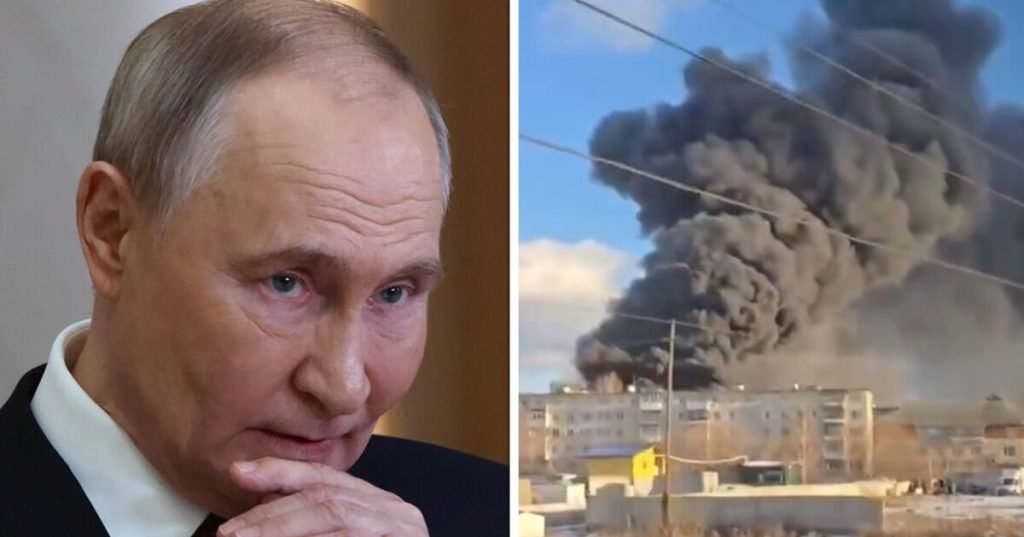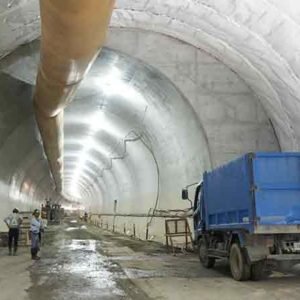
Dramatic footage has shown thick black smoke clogging the skies above a polystyrene production manufacturing equipment for the Russian army in a likely move by Ukraine to disrupt Vladimir Putin’s war machine.
Anton Geraschenko, a former adviser to the Ukrainian Interior Ministry, shared the clip, commenting: “It is reported that the fire spread to 1,500 metres.”
According to a report by the independent Russian outlet Baza, the blaze erupted at the facility in Yekaterinburg yesterday. The cause of the fire remains under investigation.
Local publication E1 reported the fire in a building housing the polystyrene production unit. A substantial emergency response was mobilised, with 62 firefighters and 22 units of specialised equipment dispatched to the scene.
According to Petro Andryushchenko, an advisor to the mayor of Mariupol, the fire occurred at the Polistirol-Stroy plant.
The facility produces “foamed polyethene Ecofoam,” a material used by the Russian army to shield vehicles against thermal imaging during combat with the Ukrainian Defence Forces.
Andryushchenko noted that some of the plant’s other products were also used to manufacture drone components.
The fire at Polistirol-Stroy comes after a series of Ukrainian drone and missile strikes targeting critical Russian infrastructure and military facilities.
Ukraine has repeatedly employed drones and missiles to disrupt supply chains, damage key production sites, and reduce Russia’s military capability. In recent months, facilities involved in the production of weapons and military equipment have been high on the list of Ukrainian targets, given their strategic importance in the ongoing conflict.
On July 30, a fire broke out at the NPO Avtomatiki Defence Enterprise in Yekaterinburg. The enterprise produces control systems for space rockets. The flames destroyed 800 square metres of the facility.
Similarly, on July 18, the Uraltransmash plant – Russia’s only producer of self-propelled artillery systems – caught fire, with reports suggesting welding work as the purported cause. These incidents, however, have raised suspicions about possible Ukrainian involvement, as such sites are prime targets in the war effort.
Given Polistirol-Stroy’s role in producing materials both for Russian military shielding and for drone components, the facility would be a logical target for Ukraine.
Destroying such infrastructure could disrupt Russian manufacturing processes, curtail military capabilities, and diminish the effectiveness of thermal shielding in the field.








